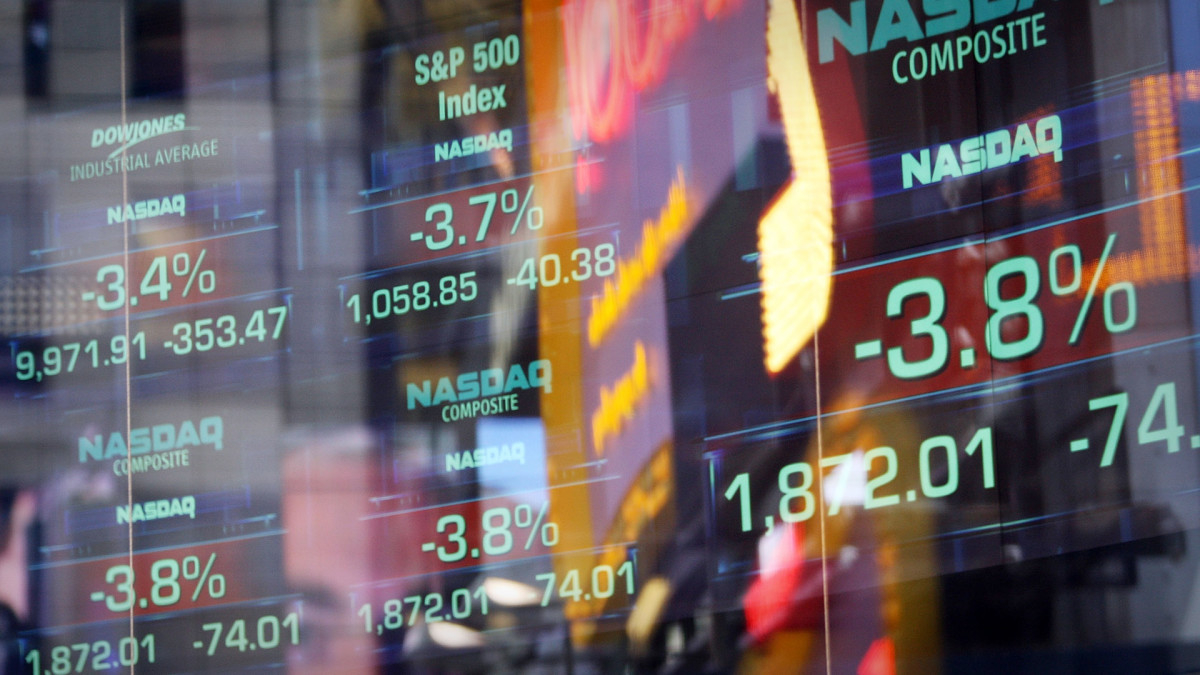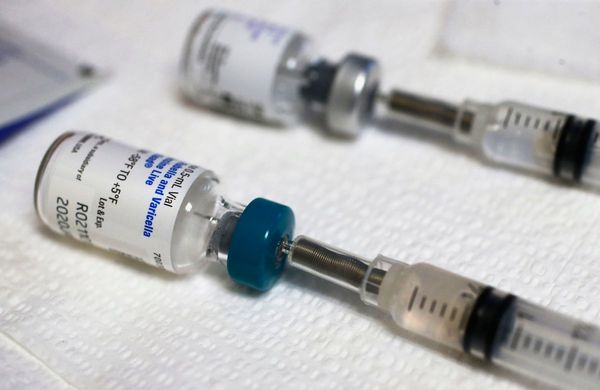
U.S. stocks turned lower Wednesday, while Treasury yields ticked modestly higher following a weaker-than-expected sale of Treasury bonds that could test the market's near-term inflation forecasts and dovish rate signals from Federal Reserve.
The Treasury sold $35 billion in 10-year notes at a yield of 4.61%, around 2 basis points higher than forecast, with a big slump in demand from foreign buyers.
The sale triggered a modest uptick in market yields, which were also spooked by a faster-than-expected reading for September factory gate inflation, sending stocks into the red in early afternoon trading.
Benchmark 10-year were last seen trading at 4.616% following the auction, while 2-year notes were pegged at 5.014%, although the odds on an end-of-year Fed rate hike fall are still no better than 25%, according to data from the CME Group's FedWatch.
The S&P 500 was marked 8 points, or 0.18% lower following the auction results, while the Dow Jones Industrial Average slipped 116 points. The Nasdaq was up 6 points.
Heading into the start of the session, investors had been cautiously optimistic in terms of risk markets, while maintaining a close and cautious eye on developments in Israel, following the surprise and brutal attack from Hamas in Gaza over the weekend.
The early gains were also linked to suggestions that the Fed has come to the end of its rate-hike cycle has come to an end, thanks in part to the recent surge in Treasury yields.
Atlanta Fed President Raphael Bostic, in fact, told an American Bankers Association event last night that the economy is "in a good place for policy to get us to 2%", the Fed's inflation target, adding that current interest rate levels as "sufficiently restrictive".
Minutes of the Fed's last policy meeting in September, which will be published at 2:00 pm Eastern time, are likely to reflect similar thinking amongst Fed rate-setters, but the move powerful tool has been the run-up in Treasury yields, which lifted benchmark 10-year notes to a 2007 high of 4.985% last week.
With yields moving higher, stocks may now struggle to extend their run of modest gains into the start of the Wednesday session, with gains also tested by producer price inflation data for the month of September that showed a modest uptick in factory gate price pressures powered by higher oil and energy costs.
"Tomorrow’s CPI could paint a different picture, but today’s PPI suggests we haven’t seen the end of sticky inflation—and high interest rates," said Mark Etzkorn a senior manager at E*TRADE from Morgan Stanley. "Either way, investors will need to remain patient. Lowering inflation significantly from last year’s highs was one challenge, getting it down to the Fed’s 2% target level is another.
In overseas markets, Europe's Stoxx 600 benchmark closed 0.18% higher in Frankfurt, with Britain's FTSE 100 slipped 0.11% in London.
Overnight in Asia, the region-wide MSCI ex-Japan index was on pace for its best session in more than two months, rising 1.25% into the close of trading, following stronger-than-expected third quarter earnings from Samsung that boosted markets in South Korea as well as reports of fresh fiscal stimulus from China.
In other markets, oil prices gave back more gains in the overnight session, with traders looking to Energy Department data on stockpiles, exports and the Strategic Petroleum Reserve later this year, as concerns over the regional impact of Hamas' attack on Israel fades further.
Brent crude contracts for December delivery, the global pricing benchmark, were last seen $1.21 lower on the session at $86.44 per barrel while WTI crude futures for November slipped $1.63 to $84.34 per barrel.
- Action Alerts PLUS offers expert portfolio guidance to help you make informed investing decisions. Sign up now.







